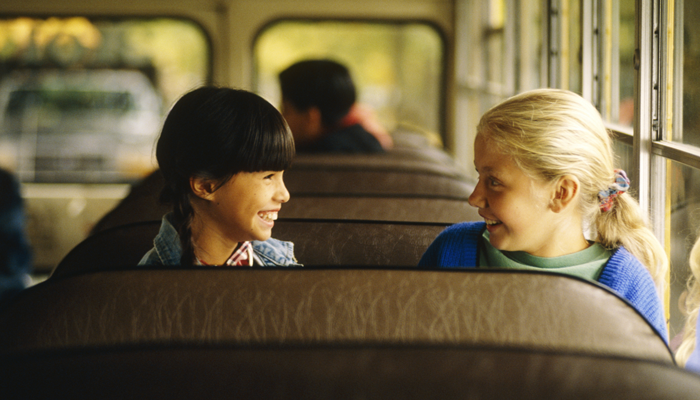Q: How can we help our eight-year-old daughter explain her open adoption to her friends?
A: Your daughter’s friends probably have many questions, especially if they are not familiar with adoption. One of the most difficult they’ll have is, “Who is your real mother?” One mom I know recalls hearing her son, Jack, being asked this in the car, while she was driving him and some of his friends to a soccer game. She held her breath, waiting for his answer. Jack said, matter-of-factly, “Mom is my real mother, but I also have a birth mother.”
Your child has two sets of parents, and both are real. Yes, you are the parents who are raising your daughter, but her birth parents play a role in her life, too, whether or not you have ongoing contact with them. If your child understands this reality, she can explain it to others.
Explaining family roles
Sometimes children respond to such questions by talking about their birth mothers. If this happens, it doesn’t mean your daughter thinks her birth mother is her real mother. She is responding to a question that she assumes is about biology. Dealing with these concepts brings an opportunity to talk with her again about the role that your family plays in her life.
It might surprise you to learn that many young adoptees assume that everyone has parents and birth parents because it seems so normal to them. Five-year-old Seth talked with his friend James (who was not adopted) about his birth mother. James went home, and asked his mom, “Who is my birth mother?” James said later that he thought it was “cool” that his friend gets presents from two sets of parents at birthday and holiday times!
“Sometimes, your child’s peers will voice the stereotypes that surround adoption, for instance that an adopted child was “unwanted.” Ten-year-old Lisa was upset when her non-adopted siblings teased each other by saying, “You’re adopted.” Lisa also didn’t like it when classmates asked her, “Why don’t you look like your mom?” She dismissed the comment by replying, “Because I was adopted.” Questions like this point out differences — and school-age children dislike feeling different from their peers
You can prepare your child for hurtful or ignorant comments by explaining that some people don’t understand adoption and don’t know about the love it takes for a birth mother to place a child for adoption. Take this situation as an opportunity to educate your daughter’s friends and to help your daughter hold a positive view of her open adoption. Some children (with a parent’s help) use show-and-tell or “star of the week” assignments at school to educate classmates about adoption and open adoption. Since children fare better with concrete, not abstract, concepts, your daughter might bring photos of her birth parents to accompany a classroom discussion.
Beyond the discussion
There will be other opportunities to help your daughter’s friends understand open adoption. Nine-year-old Sarah invited her birth mother to her birthday party. Her friends saw firsthand that Sarah’s birth mom was a part of her life, just like the other caring relatives who attended the party. As blended families become more common, children may be accustomed to having friends with multiple parents and grandparents.
Children who maintain an ongoing relationship with their birth parents are not confused as to who their parents are. Your daughter’s awareness of the roles of both sets of parents will prepare her to explain open adoption to her friends. A teenager I know, Paul, has had a relationship with his birth mother since his birth, and visits her twice a year. Recently, when an adult asked him, “Are you confused about who your real mother is?” Paul responded, “Kids aren’t stupid. We know who Mom and Dad are.”

